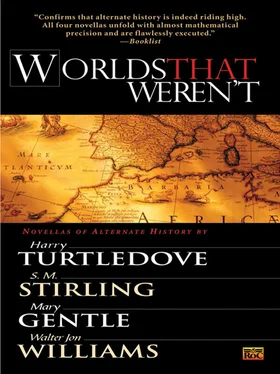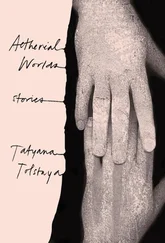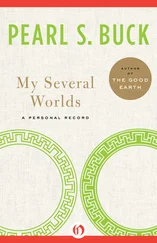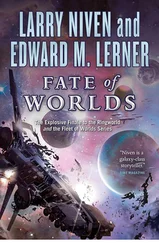Harry Williams - Worlds That Weren't
Здесь есть возможность читать онлайн «Harry Williams - Worlds That Weren't» весь текст электронной книги совершенно бесплатно (целиком полную версию без сокращений). В некоторых случаях можно слушать аудио, скачать через торрент в формате fb2 и присутствует краткое содержание. Город: New York, Год выпуска: 2002, ISBN: 2002, Издательство: Roc Hardcover, Жанр: Альтернативная история, на английском языке. Описание произведения, (предисловие) а так же отзывы посетителей доступны на портале библиотеки ЛибКат.
- Название:Worlds That Weren't
- Автор:
- Издательство:Roc Hardcover
- Жанр:
- Год:2002
- Город:New York
- ISBN:978-0451458865
- Рейтинг книги:5 / 5. Голосов: 1
-
Избранное:Добавить в избранное
- Отзывы:
-
Ваша оценка:
- 100
- 1
- 2
- 3
- 4
- 5
Worlds That Weren't: краткое содержание, описание и аннотация
Предлагаем к чтению аннотацию, описание, краткое содержание или предисловие (зависит от того, что написал сам автор книги «Worlds That Weren't»). Если вы не нашли необходимую информацию о книге — напишите в комментариях, мы постараемся отыскать её.
Worlds That Weren't — читать онлайн бесплатно полную книгу (весь текст) целиком
Ниже представлен текст книги, разбитый по страницам. Система сохранения места последней прочитанной страницы, позволяет с удобством читать онлайн бесплатно книгу «Worlds That Weren't», без необходимости каждый раз заново искать на чём Вы остановились. Поставьте закладку, и сможете в любой момент перейти на страницу, на которой закончили чтение.
Интервал:
Закладка:
“Eleleu! Elel-” Crash! Both sides’ war cries were lost in what sounded like a disaster in a madman’s smithy as the two front lines collided. Spearpoints clattered off bronze corselets and bronze-faced shields. Those shields smacked together, men from each side trying to force their foes to danger. Some spearpoints struck flesh instead of bronze. Shrieks and curses rang through the metallic clangor.
Where the man on whom Sokrates had fixed went, he never knew. He thrust underhanded at another Syracusan, a young fellow with reddish streaks in his black beard. The spearpoint bit into the enemy’s thigh, below the bronze-studded leather strips he wore over his kilt and above the top of his greave. Blood spurted, red as the feathers of a spotted woodpecker’s crest. The Syracusan’s mouth opened enormously wide in a great wail of anguish. He toppled, doing his best to pull his shield over himself so he wouldn’t be trampled.
Relying on weight of numbers, the Athenians bulled their way forward, forcing their foes to give ground and spearing them down one after another. Most of the laborers the Syracusans had protected ran back toward the fort from which they’d come. Some, though, hovered on the outskirts of the battle and flung stones at the Athenians. One banged off Sokrates’ shield.
And if it had hit me in the face? he wondered. The answer to that was obvious enough, though not one even a lover of wisdom cared to contemplate.
A Syracusan thrust a spear at Sokrates. He turned it aside with his shield, then quickly stepped forward, using the shield as a battering ram. The enemy soldier gave ground. He was younger than Sokrates-what hoplite wasn’t? — but on the scrawny side. Broad-shouldered and thick through the chest and belly, Sokrates made the most of his weight. The Syracusan tripped over a stone and went down, arms flailing, with a cry of despair. The Athenian behind Sokrates drove a spear into the fallen man’s throat. His blood splashed Sokrates’ greaves.
Athenians went down, too, in almost equal numbers, but they still had the advantage. Before long, their foes wouldn’t be able to hold their line together. Once the Syracusans fled, all running as individuals instead of fighting together in a single unit, they would fall like barley before the scythe.
But then, only moments before that would surely happen, horns blared from the walls of Syracuse. A gate opened. Out poured more Syracusans, rank upon rank of them, the sun gleaming ruddy from their bronzen armor and reflecting in silvery sparkles off countless iron spearheads. “Eleleu!” they roared, and thundered down on the Athenians like a landslide.
“A trap!” groaned a hoplite near Sokrates. “They used those few fellows as bait to lure us in, and now they’re going to bugger us.”
“They have to have twice the men we do,” another man agreed.
“Then we shall have to fight twice as hard,” Sokrates said. “For is it not true that a man who shows he is anything but easy meat will often come out of danger safe, where one who breaks and runs is surely lost? I have seen both victory and defeat, and so it seems to me.”
The more worried he was himself, the more he wanted to keep his comrades steady. The Syracusans out here by the counterwall had hung together well, waiting for their rescuers. Now the Athenians had to do the same. Sokrates looked around. He saw no rescuers. He shrugged inside his corselet. If the Syracusans wanted him, they would have to drag him down.
“Eleleu!” they cried. “Eleleu!”
Screaming like men gone mad, Athenian officers swung their men to face the new onslaught. Nothing was more hopeless, more defenseless, than a phalanx struck in the flank. This way, at least, they would make the enemy earn whatever he got. “Come on, boys!” a captain shouted. “They’re only Syracusans. We can beat them.”
Sokrates wanted to ask him how he knew. No chance for that. The two phalanxes smashed together. Now it was the Athenians who were outnumbered. They fought to keep from being driven back, and to keep the Syracusans from breaking through or sliding around their front. As men in the first few ranks went down, others shoved forward to take their places.
He found himself facing a Syracusan whose spear had broken. The enemy hoplite had thrown away the shaft and drawn his sword-a good enough emergency weapon, but only an emergency weapon when facing a man with a pike. Sokrates could reach him, but he had no chance to reach Sokrates.
He had no chance, that is, till he hacked at Sokrates’ spearshaft just below the head and watched the iron point fly free and thump down on the ground. “Papai!” Sokrates exclaimed in dismay. The Syracusan let out a triumphant whoop. A sword might not be much against a spear, but against a spearshaft…
A sword proved not so much. In the front line, Sokrates had more room to wield what was left of his weapon than he would have farther back. He swung the beheaded shaft as if it were a club. It thudded against the Syracusan’s shield. The next blow would have caved in his skull, helm or no helm, if he hadn’t brought the shield up in a hurry. And the third stroke smacked into the side of his knee-he hadn’t got the shield down again fast enough. No greave could protect him against a blow like that. Down he went, clutching his leg. In a scene straight from the Iliad, the hoplite behind him sprang forward to ward him with shield and armored body till comrades farther back could drag him out of the fight.
Sokrates used the moment’s respite to throw down the ruined spear and snatch up one that somebody else had dropped. He dipped his head to the Syracusan across from him. “Bravely done, my friend.”
“Same to you, old man,” the other soldier answered. “A lot of hoplites would have cut and run when they lost their pikes.” He gathered himself. “Brave or not, though, Athenian, I’ll kill you if I can.” Fast as a striking snake, his spearhead darted for Sokrates’ face.
Ducking away from the thrust, Sokrates answered with one of his own. The Syracusan turned it on his shield. They both stepped forward to struggle shield to shield. The Syracusan kept up a steady stream of curses. Panting, winded, Sokrates needed all his breath to fight.
He drew back a couple of paces, not because the enemy hoplite was getting the better of him but because the rest of the Athenians had had to retreat. “Should have stayed, old man,” the Syracusan jeered. “I’d have had you then, or my pals would if I didn’t.”
“If you want me, come and fight me,” Sokrates said. “You won’t kill me with words.” I might fall dead over of my own accord, though. He couldn’t remember the last time he’d been so worn. Maybe-probably-he’d never been so worn before. Maybe my friends back in Athens were right, and I should have stayed in the city. War is a young man’s sport. Am I young? He laughed. The Syracusan hoplite who’d been trying to kill him knew the answer to that.
“What’s funny, old man?” the Syracusan demanded.
“What’s funny, young man? That you are what I wish I were,” Sokrates replied.
In the shadowed space between his nasal and cheekpieces, the other man’s eyes widened slightly. “You talk like a sophist.”
“So my enemies have always-Ha!” Sokrates fended off a sudden spearthrust with his shield. “Thought you’d take me unawares, did you?”
“I am your enemy. I-” Now the Syracusan was the one who broke off. He turned his head this way and that to look about. With his helmet on, a hoplite couldn’t move only his eyes. Sokrates looked, too, with quick, wary flicks of the head. He saw nothing. For a moment, he also heard nothing. Then his ears- an old man’s ears, sure enough, he thought-caught the trumpet notes the Syracusan hoplite must have heard a few heartbeats sooner.
Читать дальшеИнтервал:
Закладка:
Похожие книги на «Worlds That Weren't»
Представляем Вашему вниманию похожие книги на «Worlds That Weren't» списком для выбора. Мы отобрали схожую по названию и смыслу литературу в надежде предоставить читателям больше вариантов отыскать новые, интересные, ещё непрочитанные произведения.
Обсуждение, отзывы о книге «Worlds That Weren't» и просто собственные мнения читателей. Оставьте ваши комментарии, напишите, что Вы думаете о произведении, его смысле или главных героях. Укажите что конкретно понравилось, а что нет, и почему Вы так считаете.












